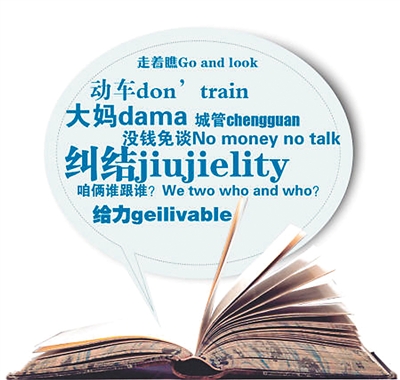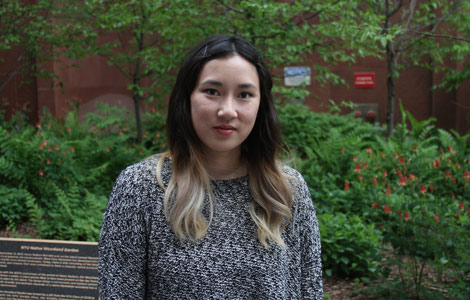Chinglish gains popularity overseas
Updated: 2014-05-12 13:57
(People's Daily Online)
|
|||||||||
 |
|
Chinglish phrases are making their way into the Western vocabulary. [Photo/People's Daily Overseas Edition] |
 |
| Found in translation |
 |
| Finding your perfect English name |
According to the entry submitted by 'gingerdesu', "You can you up," meaning 'if you can do it go ahead and do it' , is a Chinglish phrase directed at people who criticize others' work, especially when the critic is not that much better. The entry continues: "Often followed by 'no can no BB', which means ‘if you can't do it then don't even criticize it'".
Linguists say the phenomenon shows that Chinglish is now being accepted by the rest of the world and has been integrated into daily life.
As well as "you can you up", other Chinglish catch phrases, such as "tuhao" and "no zuo no die", have also been recorded on the site.
Coined with roots in Chinese grammar, and even containing Hanyu Pinyin, Chinglish words and phrases are even spreading beyond grassroots websites.
In 2010, an article published by the Economist cited the term "guanggun" (bare branches, or men who will not add to the family tree) to refer to the "overaged" single male; in 2013, "dama" and "tuhao" found their way into the Wall Street Journal and the BBC, and words such as feng shui, Maotai, and gan bu have been admitted to the Oxford English Dictionary.
"The frequent use of Chinglish by foreign institutions suggests that people are looking more to the lifestyle and popular culture of China," says Zhang Yiwu, professor of Peking University's Chinese Department.
"Words like dama and tuhao are so vivid. My friends and I use them a lot - it's so much fun," said Satoshi Nishida, a Japanese student studying at Beijing Language and Culture University (BLCU).
"Behind these Chinglish words and phrases is the Chinese culture. They are reflections of the changes and trends in the Chinese society and they help people from other countries to understand what's happening in China," according to Xing Hongbing, professor with BLCU.
"When the price of gold went down last year, while the super purchasing power of the Chinese bargain-hunting middle-aged women drew worldwide attention, there was no effective way available in other languages to describe them, and "dama" filled the gap very neatly," says Xing.

 'Taken 2' grabs movie box office crown
'Taken 2' grabs movie box office crown
 Rihanna's 'Diamonds' tops UK pop chart
Rihanna's 'Diamonds' tops UK pop chart
 Fans get look at vintage Rolling Stones
Fans get look at vintage Rolling Stones
 Celebrities attend Power of Women event
Celebrities attend Power of Women event
 Ang Lee breaks 'every rule' to make unlikely new Life of Pi film
Ang Lee breaks 'every rule' to make unlikely new Life of Pi film
 Rihanna almost thrown out of nightclub
Rihanna almost thrown out of nightclub
 'Dark Knight' wins weekend box office
'Dark Knight' wins weekend box office
 'Total Recall' stars gather in Beverly Hills
'Total Recall' stars gather in Beverly Hills
Most Viewed
Editor's Picks

|

|

|

|

|

|
Today's Top News
China protests against US indictment
Improve Sino-US military ties
US envoy seeks Chinese backers for key projects
China summons US ambassador over indictment
Migrants to China on the increase
China halts cyber working group activities with US
Jumei IPO 'milestone'
Chinese foreign minister meets UN chief in Shanghai
US Weekly

|

|







